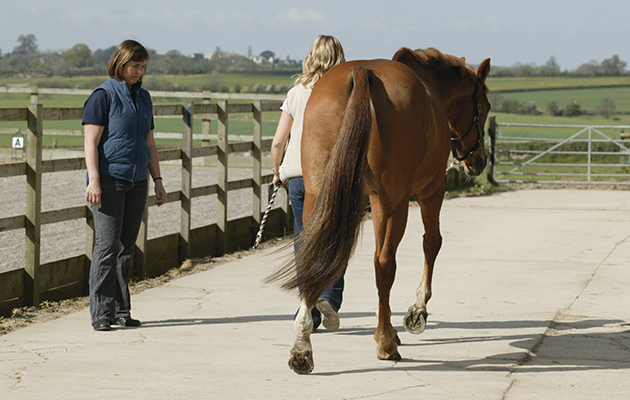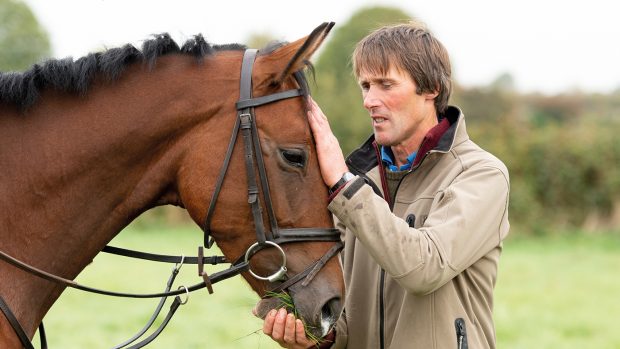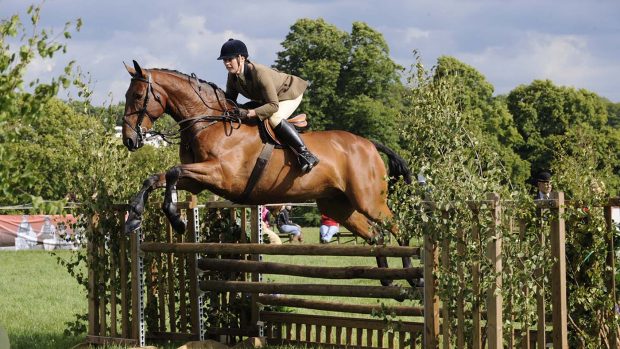While many of us horse owners will do everything we can to adjust our own expenses in order to be able to cover our horse’s costs, with the cost of living crisis continuing to bite, some of us may face the unpleasant realisation that we need to sell a horse to be able to pay our bills. If this applies to you, knowing how to improve your horse’s value should help expedite not only a fast sale, but ensure it is a lucrative one too. Quite simply, the same horse being marketed after two months or more off work in the field is likely to sell for less than when he is fit, up and running.
Bear in mind that you may need to make some investment – in time and/or money – to reap these rewards. So you have to weigh up whether it is better financially to try to sell a horse cheaply without that work and investment, or to take the appropriate amount of time and effort to achieve a bigger price-tag further down the line.
- Want to sell your horse? Book a horse for sale advert with Horse & Hound, powered by Whickr
10 ways to improve horse’s value
A marketable horse should be:
An appealing purchase
You cannot make a silk purse out of a sow’s ear, but a well-trained, polite horse will typically find a buyer more quickly than an unruly one. So while you might not literally add value, you’re more likely to sell for the asking price as this type of horse readily finds a new home.
A safe conveyance
A trustworthy ride can be priceless – even if the market rate for a certain horse’s physical ability and CV might not be sky-high. Make sure your horse is well-schooled on the road, in traffic, with tractors and farm machinery. Can he go round a farm and not spook at sheep, cows and pigs? Have you exposed him and desensitised him to distractions and hazards? Police horses spend many hours getting used to noises and hazards – work at it until you can faithfully sell him as a safe hack.
Well-schooled
If you do not have the skills to improve your horse’s way of going yourself, consider it a wise investment to seek a professional’s help. This should improve the value of your horse exponentially. It may also mean he can tot up a few competition results, as well as be more exposed to buyers thanks to being in a professional yard. Some buyers would rather put their trust in a reputable professional than a one-horse owner who has no history or references to check.
An all-rounder
A horse that can do a bit of everything has options when it comes to prospective buyers. A horse that shows a good attitude to work, hacks out, loads, is good to shoe, and can pop a pole, will be a nice all-rounder. The buyer can then choose to specialise in their chosen area.
Competition results
This is where you can make the biggest increase in value. Of course, this comes with its own investment – competing isn’t cheap, but if you can rack up some decent results on his record (and even some prize money to boot), you can quickly escalate the asking price. Major on what the horse is naturally gifted at, and get out competing. If you are not confident to compete, and the horse is capable, consider sending him to a professional to fulfil his ability.
In good health
You can’t always make a lame horse sound, but it’s worth knowing where you stand before starting the selling process. Asking the vet to give your horse a check-over is another expense, but one that may pay dividends in the long run. As most horses will be vetted prior to purchase to comply with insurance requirements, it’s worth knowing what the potential challenges are and whether you can do anything to improve any issues. There may be minor dermatological issues that can be easily fixed, for instance. It also means you can put on the ad, “clean X-rays” if appropriate, or manage your price expectations. Furthermore, if the horse has an old scar which is of no consequence for a competitive career, for example, it’s reassuring to have the vet’s assessment to share with the buyer.
Good to shoe, box, clip and catch
These have nothing to do with the horse’s physical ability, but they are still plus points when it comes to sale. Or to flip it, if he’s bad at any of these basic requirements, you may well have to sell him for cheaper than his value. Seek professional help if needed, and work at all these skills patiently until they are second nature.
Registered with a society
Horses that are registered with the appropriate society or association in which you are marketing the horse – for example, British Eventing or British Dressage – tend to have a higher price-tag than those which are not registered at all. It looks more professional, with the intention of the horse going places. Again, a little bit of competitive experience appropriate to the horse’s age and stage is always a bonus.
Fit and ready to go
Many buyers want a horse that is fit and ready to work, even if they want to put their own stamp on them. It is easier for the buyer to judge the horse’s ability if it is in work and produced to sell. On the other hand, buyers looking for a bargain are more likely to try to spot one in the rough, so make sure yours is not!
Market your horse well with great photos and videos
This shouldn’t increase the price-tag, but it will make him easier to sell. A professional-looking video is appealing to buyers and will make a decent price look appropriate. Make sure your photos match your advertisement, so if you say he’s jumping 1.20m at home, don’t video him over a tiny cross-pole. Show him off at his best.
Of course, horses are only ever worth what a buyer is willing to pay, and market rates fluctuate. However, the more boxes you tick, the more options your horse has for potential buyers – and the more likely you are to get a decent price.
- Want to sell your horse? Book a horse for sale advert with Horse & Hound, powered by Whickr
- To stay up to date with all the breaking news from major shows throughout 2025, subscribe to the Horse & Hound website
You may also be interested in:

How to prepare your horse for a quick and hassle-free sale

Choosing the right photos and videos to sell your horse

Honesty is the best policy – but not everyone agrees: 8 life lessons you learn when you sell a horse

Subscribe to Horse & Hound magazine today – and enjoy unlimited website access all year round




